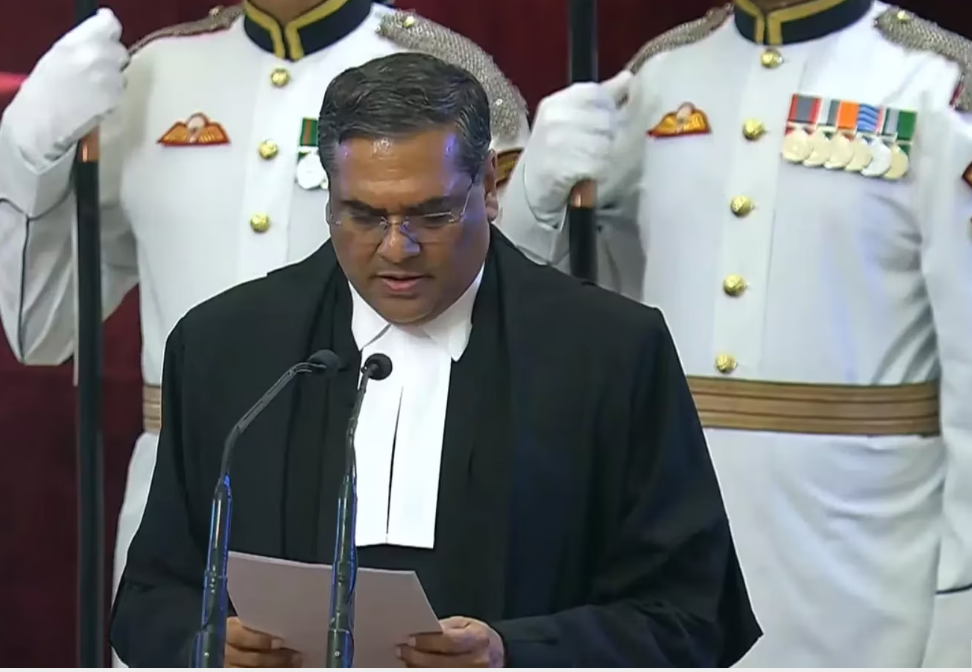
Justice Sanjiv Khanna has officially assumed office as the Chief Justice of India, succeeding Justice DY Chandrachud. He is the 51st Chief Justice of India.
President of India Droupadi Murmu administered the oath to Justice Khanna at a swearing-in ceremony held at the Rashtrapati Bhavan. He will have a nearly seven-month term till May 13, 2025.
Justice Khanna was elevated to the Supreme Court from the Delhi High Court on January 18, 2019.
Notable judgments of Justice Khanna
Justice Khanna was part of the bench which took suo motu cognisance of the media reports making sexual harassment allegations against the then CJI Ranjan Gogoi in April 2019.
In 2019, Justice Khanna wrote the lead judgment on behalf of the Constitution Bench which held that the RTI Act is applicable to the office of the CJI. Justice Sanjiv Khanna’s judgment in Amish Devgan v. Union of India is notable for emphasising the need to regulate hate speeches.
In 2021, Justice Sanjiv Khanna dissented from the 2-judge majority to hold that requisite processes were not followed for the Central Vista project. Justice Khanna wrote the judgment on behalf of the Constitution Bench which held that irretrievable breakdown can be a ground for the Supreme Court to dissolve marriage invoking powers under Article 142 of the Constitution.
Justice Khanna dealt with the politically sensitive matters regarding the bail applications of Aam Aadmi Party leaders Arvind Kejriwal, Manish Sisodia and Sanjay Singh in the Delhi liquor policy case. In 2023, his bench refused bail to Manish Sisodia but directed that the trial should be completed expeditiously. In the Sanjay Singh case, ED conceded the grant of bail after facing certain questions from Justice Khanna’s bench.
In May this year, in a one-of-its-first-kind order, Justice Khanna’s bench allowed interim bail to the then Delhi Chief Minister Arvind Kejriwal for the purposes of election campaigning. In July, Justice Khanna’s bench granted interim bail to Kejriwal referring the matter to a larger bench to examine the need to include further grounds for arrest under the PMLA to prevent abuse of the law.
Justice Khanna’s bench also dealt with the EVM-VVPAT matter. While refusing plea for 100% VVPAT verification, the judgment directed the ECI to introduce further safeguards.
He was also part of the Constitution Bench decisions in Article 370 and Electoral Bonds cases. In the Electoral Bonds matter, he penned a separate but concurring opinion detailing how the anonymous scheme violated Constitutional rights.